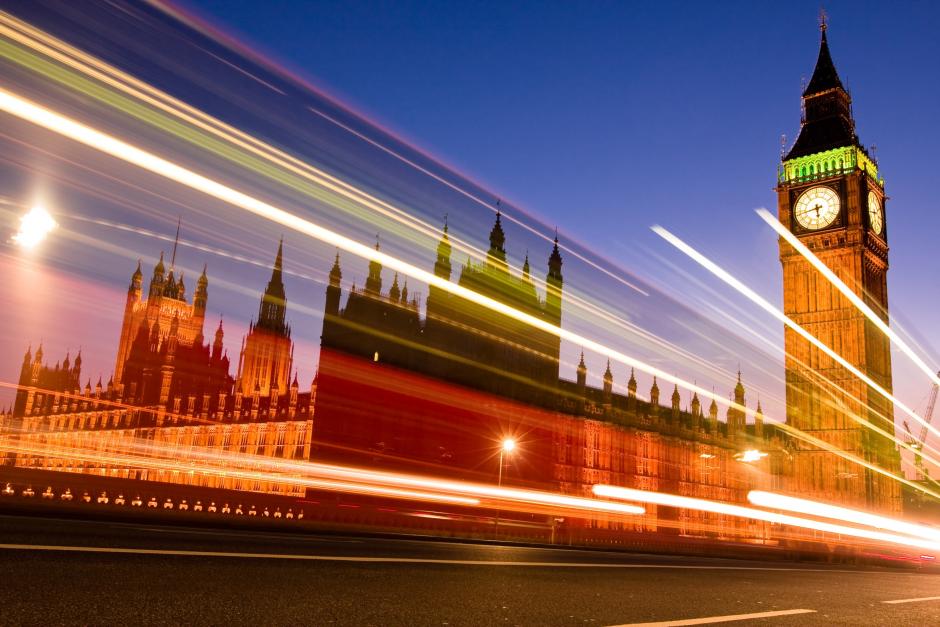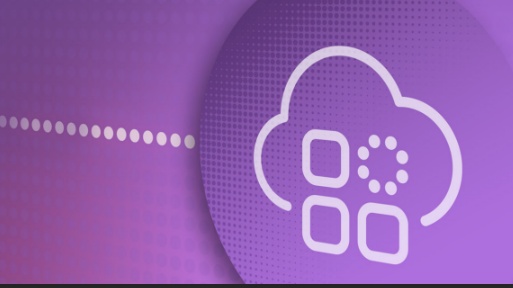General Election 2015: How parties' tech policies shape up
Part Two: Data privacy vs spying, digital government and open data

In a matter of weeks 10 Downing Street may have a new tenant.
With the UK's political parties setting out their stalls ahead of the general election, we examine the policies and pledges that could affect you for the next five years, to help you decide on what to do with your vote.
Whether you're an SMB, a developer, a government supplier, or someone concerned about their privacy, most parties have something to say that you'll want to hear.
This is Part Two of our general election analysis. You can read Part One here.
Personal data and privacy
Conservatives
Prime Minister David Cameron gave a strong nod to his party's attitude to privacy with his pledge to ban encrypted messaging services like Whatsapp if the Tories win May's election.
He claimed they make it harder for spy agencies to decrypt and intercept messages.
Get the ITPro daily newsletter
Sign up today and you will receive a free copy of our Future Focus 2025 report - the leading guidance on AI, cybersecurity and other IT challenges as per 700+ senior executives
The party's manifesto reads: "We will keep up to date the ability of the police and security services to access communications data the who, where, when and how' of a communication, but not its content."
It claims Cameron's communications data legislation the mooted Snooper's Charter, previously foiled by the Lib Dems, will help disrupt terrorist plots and criminal networks, promising strong oversight of these powers.
Hanover's Richards points out: "There is a recognition of the role of technology in keeping the country safer" that goes beyond spying for instance, training cyber specialists in the police.
The Tories would also seek to introduce age verification on porn websites.
Under a Conservative government, it would continue a push to opening up more public datasets to be used by third-parties including app developers.
Labour
Miliband would seek to strike a balance between updating "investigative laws" based on technology and safeguards to protect people's privacy.
Much of Labour's policy, though, may be influenced by the outcome of an independent review into terrorism legislation led by David Anderson.
Labour would make an open data by default policy, releasing data to the public and increasing the amount shared between services.
Lib Dems
The Liberal Democrats have made a Digital Bill of Rights one of the driving forces of their election manifesto, promising to introduce it within the first six months of their tenure.
This legislation would replace the Data Retention and Investigatory Powers Act, which expires next year.
The bill would see data thieves sent to jail, and stop the government from weakening cyber security and encryption measures used by British firms.
Data watchdog the Information Commissioner's Office would also get stronger powers to fine public bodies leaking data, while free speech online would be safeguarded.
Julian David, CEO of industry trade body techUK, says: "The manifesto gives attention to important questions arising about the expiry of DRIPA surveillance powers in 2016.
"TechUK will continue to make the case for a clear legal framework that outlines how Government and industry work together on this area."
Hanover's Richards adds: "Civil liberties feature throughout the manifesto, and the technology sector is no different.
"Their Digital Bill of Rights ... would reform personal data laws and protect encryption by businesses, individuals and third parties, perhaps in contrast to the Conservative and Labour positions."
The Lib Dems would release public datasets in an open format.
Green Party
Natalie Bennett's Greens would oppose any mass state surveillance as exposed by former NSA contractor Edward Snowden.
It'd also oppose the sale of personal data such as health details, an indirect reference to the scandal last year in which the Institute and Faculty of Actuaries sold people's medical histories to insurance companies.
The Greens would toe the line set by the EU Court of Human Rights on surveillance and data retention, and would support the EU in strengthening data protection laws.
They would consider turning some of these policies into their own Digital Bill of Rights.
As a minority partner, the party would also support the concept of open data that could be turned into useful apps.
UKIP
Nothing.
Verdict
Aside from UKIP, which appears to have forgotten about data entirely, all parties are in support of an open data approach that would see more public datasets released in a standard format.
This could realise huge benefits to the economy and society at large, with developers making useful apps around data regarding infrastructure like street lighting or transport.
It's a very different story when it comes to balancing data privacy and investigatory powers.
The Conservatives lean very much in the direction of doing whatever it takes to ensure threats to Britain are uncovered.
This includes watering down encryption and, under the Draft Communications Data Bill, allowing law enforcement and intelligence agencies to access communications data.
It also compels ISPs and websites to store information on users for at least 12 months.
Anyone who cares about their civil liberties should be concerned about this.
On the other end of the spectrum, the Lib Dems want to ensure personal privacy is protected by government, and its Digital Bill of Rights will be welcomed by privacy campaigners.
The Greens aren't as detailed in their proposals, but offer a similar pledge to the Lib Dems.
Labour, on the other hand, barely says a word on the matter. It claims to wish to strike a balance between spying and digital freedom, and we may only know which way the balance tips if they come into power.
Digital government and public services
Conservatives
The Tories have a five-year head start in transforming public services by driving a digital-first government agenda.
Under the coalition, large legacy IT contracts were in the process of being phased out in favour of using smaller suppliers through frameworks like the G-Cloud.
Whitehall introduced the Government Digital Service (GDS), a large team driving departments to become digital while also transforming IT and public services.
Initiatives like Gov.uk have seen all government websites move to one platform, while Government-as-a-Platform (GaaP) would create common components departments can re-use for different services, cutting down on outsourcing and waste.
"We have already created 20 high-quality digital services, which include apprenticeships applications and tax self-assessments," reads the Tory manifesto.
"We will save you time, hassle and money by moving more services online, while actively tackling digital exclusion.
"We will ensure digital assistance is always available for those who are not online, while rolling out cross-government technology platforms to cut costs and improve productivity such as Gov.uk."
Consulting firm Hanover points out the GDS always has the user of the service rather than the service itself in mind.
"The focus is not so much on government efficiency important though that is but the end-user," it writes.
Labour
Labour would support more inclusion of SMBs while also reaching out to large suppliers who feel unfairly treated by Cabinet Office minister Francis Maude's drive to cut down on Big IT contracts.
However, it'll scrap targets for SMB procurement, introduced by Maude in an attempt to change government departments' spending habits.
Kable analyst Jessica Figueras believes there's little to make Labour's vision for digital government distinct from that of the Tories.
"There's very little different in the big areas," she tells IT Pro. "I just can't really see much change."
Saying this, shadow Cabinet Office minister Chi Onwurah has urged the GDS to do more to tackle digital exclusion, saying she would ensure it transformed services used by the most needy in society.
Lib Dems
Nick Clegg's party wants to keep the GDS going and develop it, expanding the drive to digital into local government, too.
But overall, there's scant information on digital government in the Lib Dems manifesto.
The party is keen to continue making public services digital by default, though, a process set in motion by the coalition under the Government Digital Service (GDS).
Green Party
Nothing.
UKIP
Nothing.
Verdict
Digital government, one of the most exciting and interesting developments in the last five years under the coalition, is arguably a non-issue in this election, even considered among tech issues.
That's not because it's not important, but because there's simply not very much difference between the three main parties' aspirations for it.
The Tories and, to a lesser extent, the Lib Dems, deserve much credit for introducing the GDS and cutting down on legacy contracts, but there is much work still to be done.
However, those two parties and Labour all appear to have a common consensus on where to go next. Aside from the debate over whether or not the GDS should have a local government remit, there's little disagreement between the parties.
There's also the issue of Labour scrapping targets for SMB procurement: small businesses won't be happy to hear that, particularly with direct spend dropping under the Tories anyway and that's with a target.
-
 Cleo attack victim list grows as Hertz confirms customer data stolen
Cleo attack victim list grows as Hertz confirms customer data stolenNews Hertz has confirmed it suffered a data breach as a result of the Cleo zero-day vulnerability in late 2024, with the car rental giant warning that customer data was stolen.
By Ross Kelly
-
 Lateral moves in tech: Why leaders should support employee mobility
Lateral moves in tech: Why leaders should support employee mobilityIn-depth Encouraging staff to switch roles can have long-term benefits for skills in the tech sector
By Keri Allan
-
 UK businesses patchy at complying with data privacy rules
UK businesses patchy at complying with data privacy rulesNews Companies need clear and well-defined data privacy strategies
By Emma Woollacott
-
 Data privacy professionals are severely underfunded – and it’s only going to get worse
Data privacy professionals are severely underfunded – and it’s only going to get worseNews European data privacy professionals say they're short of cash, short of skilled staff, and stressed
By Emma Woollacott
-
 Four years on, how's UK GDPR holding up?
Four years on, how's UK GDPR holding up?News While some SMBs are struggling, most have stepped up to the mark in terms of data governance policies
By Emma Woollacott
-
 Multicloud data protection and recovery
Multicloud data protection and recoverywhitepaper Data is the lifeblood of every modern business, but what happens when your data is gone?
By ITPro
-
 Intelligent data security and management
Intelligent data security and managementwhitepaper What will you do when ransomware hits you?
By ITPro
-
 How to extend zero trust to your cloud workloads
How to extend zero trust to your cloud workloadsWhitepaper Implement zero trust-based security across your entire ecosystem
By ITPro
-
 The threat prevention buyer's guide
The threat prevention buyer's guideWhitepaper Find the best advanced and file-based threat protection solution for you
By ITPro
-
 Why The Matrix offers valuable lessons on data sovereignty for channel partners
Why The Matrix offers valuable lessons on data sovereignty for channel partnersIndustry Insight Two decades on, there's much that the Matrix series can teach channel partners about data sovereignty
By David Devine